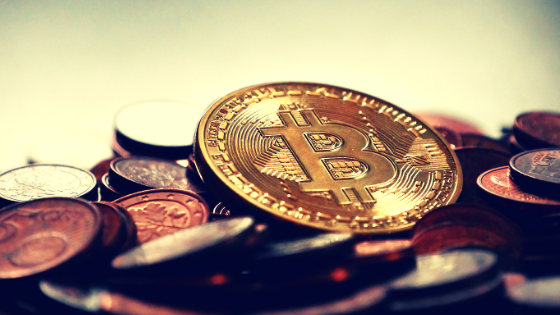Best Bitcoin Casinos Online
Bitcoin casinos are becoming a popular choice with respect to online gaming for both experts and novices alike. There is no doubt that their popularity will continue to increase. Bitcoin casinos tend to be a safer and more reliable way to gamble online. Safety increases because financial information isn’t passed on to the online casino itself. Here is a complete overview of the basics of Bitcoin casinos. Learn the benefits of playing casino games with Bitcoin as well as how you can start playing with cryptocurrency in general.
What is Bitcoin? How Can I get it?
Nowadays everyone has a general idea of what Bitcoin is. The very first Bitcoin was created in 2008 by the software developer Satoshi Nakamoto. His ingenious idea simplifies a way of exchanging money in a decentralized way. There is no central bank, which is unlike any currency used before. The man and the myth Satoshi Nakamoto is still somewhat of a mystery as far as his identity is concerned. Bitcoin allows secure peer to peer transactions with no other party involved. Bitcoin has many benefits and can be used in many places around the world. Online casinos are one of the many places where Bitcoin can be used to gamble and in turn win real money.
What are Bitcoin Casinos?
Bitcoin casinos are exactly what their name suggests. They are online casinos that offer deposits and withdrawals done in this online currency. Instead of using bank accounts, wires, or credit cards to deposit and withdraw money, Bitcoin is used instead. Bitcoin was and is developed solely as a form of online currency. It can be more secure than more traditional methods. These casinos operate very similarly to other online casinos. They offer various promotions as well as have extensive game selections.
Bitcoin Casinos vs. Online Casinos
Both types of casinos can offer a wide selection of online casino games, from cards and craps to slots and bingo. The only significant difference between the two is the currency deposited or withdrawn. While both types of casinos are offering promotions, the ones that more traditional casinos provide are relatively static. They have signup bonuses that usually match deposit amounts and other attractive weekly specials. The number you win on these is the same amount no matter what casino you are playing at. However, they may be divided up differently.
With these casinos however, players have a slight monetary advantage. Some casinos offer players the chance to exchange Bitcoin with other players. If the exchange rate for the currency involved has changed since the initial investment, players can sell what they currently have for more than what they paid. They can earn a profit off of the winnings. Likewise, players can purchase a large sum of Bitcoin for a lower amount than what the current exchange rate is.
Why Should Players Choose Bitcoin Casinos?
Bitcoin casinos aren’t set up toward any particular audience. As long as it is legal to participate in an online casino in the country in which you call home, you are welcome to play. If you are a player that is looking for a more secure way to bet and be paid in an online casino, then Bitcoin casinos are absolutely the way to go.
By using Bitcoin, you no longer need to worry about giving online casinos access to your finances. You don’t have to provide any credit or debit card information to a Bitcoin casino. Nor do you have to be concerned about any delay with wire or bank transfers. If you want to get your winnings fast, then definitely choose a Bitcoin casino. This method of online banking does not require any delay in processing funds. It doesn’t charge any fees to pay your money. There are some minimum and maximums to be met but they aren’t any different than what any other online casino would offer.
How to Play Online Casino Games with Bitcoin
Playing at Bitcoin casinos or online casinos that accept Bitcoin is pretty simple. We have broken down the simple steps to start playing your favorite games with Bitcoin. In just these few steps, you will be well on your way to gambling with Bitcoin.
To be able to use Bitcoin at a casino, you must first have a Bitcoin wallet. A Bitcoin wallet allows access to money and stores your Bitcoin. The best type of Bitcoin wallet for use at online gambling establishments is a web-based wallet. Be sure to research the best wallet to suit your needs. For added security, you could use a desktop wallet. This type of wallet lives on your desktop. When you sign up for a Bitcoin casino or use Bitcoin at a casino that accepts cryptocurrency, you will be able to connect your Bitcoin wallet to the casino of your choice.
Signing Up
When your Bitcoin is fully processed and in your wallet, it is then time for you to select which Bitcoin casino to play at. Some regular online casinos accept Bitcoin and there are also casinos which only accept Bitcoin. Be sure to read reviews before spending any of your money at one of these. There are many casinos to choose from but, it is crucial to only gamble at reputable casinos. Take advantage of the welcome bonuses because they can offer great welcome offers like free cash just for signing up. Once you have selected the casino you would like to play at, sign up, and link your cryptocurrency wallet to the casino. The sign-up process at these casinos is easy. They will walk you through it step by step, making sure your Bitcoin is processed, just like regular money.
Start Playing!
After your money is converted to Bitcoin, you will be able to start playing at casinos that accept Bitcoin for wagers. At regular casinos, players would need to enter personal credit card information. With these types of casinos, this step is skipped. Players use their cryptocurrency wallet to connect to the casino and start playing! Making deposits and withdrawals is easy and players are guided every step of the way.
FAQ’s – Bitcoin Casinos
Everything you wanted to know about Bitcoin casinos you can find below. If you have any other questions, feel free to drop a comment or contact us. We are always happy to help in any way we can!
Bitcoin Casinos, what are they?
To put it simply, a Bitcoin casino is an online casino that allows players to use Bitcoin to place bets. It may even offer the same games. Some only accept Bitcoin, while others may accept both credit cards and Bitcoin.
Is it legal to gamble with Bitcoin?
As with anything online gambling-related, it is essential to know the gambling laws of where you reside. As far as Bitcoin is concerned, there are no clear laws about gambling and cryptocurrency. Make sure you follow the rules and regulations where you are playing at.
How vital is it that a Bitcoin casino is licensed?
Finding a reputable and licensed Bitcoin casino is essential. When using any form of currency, it is vital to know if the casino you are playing at follows strict rules and regulations all online casinos must follow.
How secure are cryptocurrency casinos?
Bitcoin casinos follow the same encryption and security measures that regular online casinos do. It is imperative to read the reviews of casinos. Make sure the casino treats its player’s information securely, and that it’s legitimate. Licenses should be available for players to understand and verify the legitimacy of the casino.
Is personal information need to play at a Bitcoin casino?
One of the best parts of playing at a Bitcoin casino is the ability to play without sharing any personal information. Your personal information is always secure.
Are there Bitcoin casino which offers bonuses?
Similar to regular online casinos, bonuses are offered. Many casinos provide a fantastic welcome bonus. Make sure to research these casino bonuses online before depositing any Bitcoin.
Can you play Bitcoin casinos in the US?
Yes! There are plenty of US casinos that accept and specialize in Bitcoin casino games. Playing with cryptocurrency in the USA is becoming very common. Casinos usually offer multiple deposit and withdrawal options.
Can you play using Bitcoin on a mobile device?
You can play at Bitcoin casinos on almost all mobile devices. Being able to play with your preferred type of currency, while on the go is an excellent benefit of Bitcoin casinos.
Where can I play casino games using Bitcoin?
We offer some fantastic reviews of these casinos. As well as online casinos that accept Bitcoin. Be sure to research these reviews. Also, check Google for help on deciding which is the best for you. These casinos are easy to find and quickly becoming desirable places to gamble online.
Here’s What We Looked at to Determine our Top Bitcoin Casinos
There aren’t nearly as many dedicated Bitcoin casinos as there are standard online casinos. Despite the main differences, many of the criteria that we reviewed is the same as an online casino. We looked at all of the casino games that they offered. Mainly what kind of variety they had. As well as if any of the newest and most popular games are available. Promotions and bonuses are also examined. For instance, what type they have and the variety. In addition to this, how frequently is the casino offering new promotions, and is it anything that is unique to that particular casino?
Our Favorite Bitcoin Casinos
In determining our top Bitcoin casinos we rated deposit and withdrawal methods. To add to that, we included turnaround time and any fees. We are also looking to see if they are provably fair games and to identify these. We evaluate customer support, specifically the different ways you could reach them. Also, we rate the response time regarding to how long it took them to respond and to how available they were. As well as the accuracy of their resolutions. Presently, all of these casinos accept Bitcoin deposits. They have been thoroughly vetted with our high-quality standards. Bitcoin is a secure way to play your favorite online slots, poker, table games, and more. Here are some of our reviews for casinos that accept Bitcoin:
- Slots.lv
- Lincoln
- Planet 7 Casino
- Royal Ace
- Old Havana Casino
- Miami Club Casino
- Las Vegas USA
- Platinum Reels
- Bovada
- GT Bets
The casinos above are fantastic reputable. The cryptocurrency revolution is here to stay! There are many benefits to using Bitcoin while playing online casino games. The added security, safety, and flexibility of playing with Bitcoin is a great advantage. We hope you enjoy playing at our recommended casinos and wish you the best luck!



